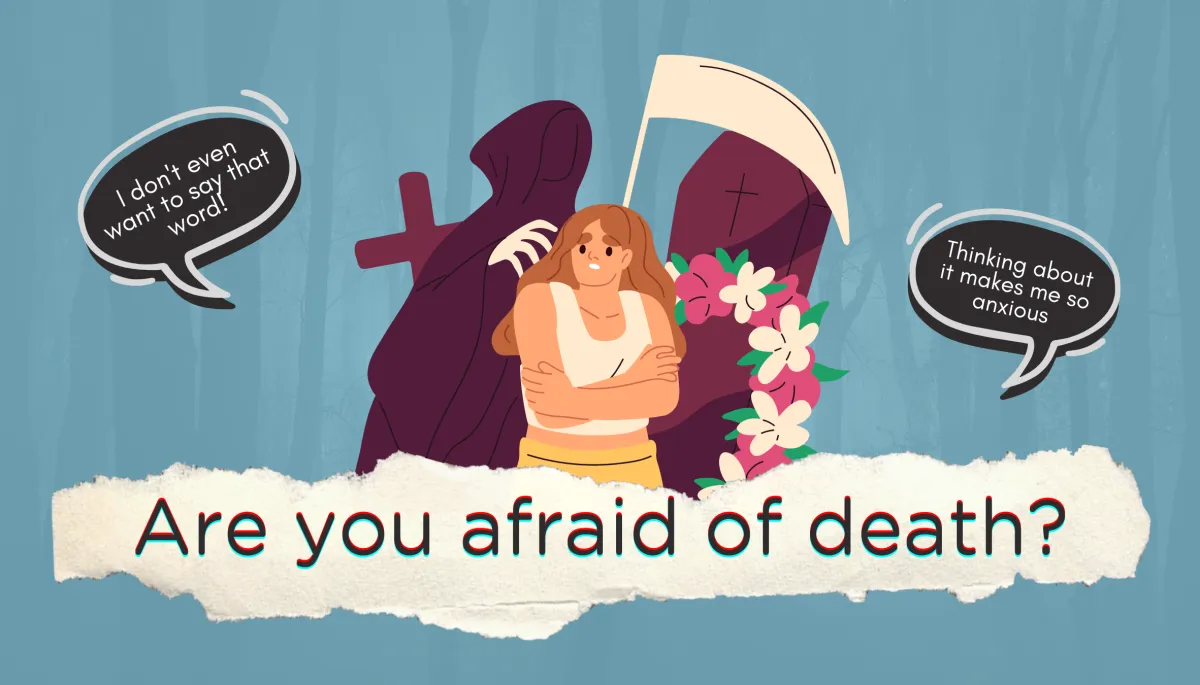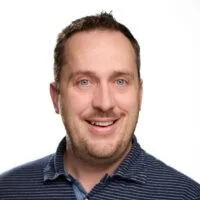General Inquiries: (587) 333-6349 - info@sanostate.com



Death – What’s the Big Deal?
“We are constantly making things worse in our minds than what they actually are. So why would death be any different?”
People tend to get uncomfortable whenever the topic of death comes up. If you pay attention carefully, you’ll see that people even avoid the word death! In my academic research on the topic, I had participants complete surveys and activities for a small amount of money (about $2.00 USD). Among these tasks was one activity that asked them to consider their own death and describe the emotions that surfaced during the thought of dying. Most participants described the negative emotions they faced, but one response in particular grabbed my attention that said, “Ha! Not for $2.00, I won’t!”
It has become so taboo, that it is almost rude to talk about death. Especially if it’s about somebody that hasn’t died yet. And I get it, as humans we face a dilemma so unique, that I don’t believe any other species confronts, which is that although we are hardwired to survive, we know that each of us at one point or another will inevitably die.
Ernest Becker won the Pulitzer Prize for his book, “The Denial of Death.” His book seems to convey the idea that a human being's primary motivator is the fear of death, quite different from Freud’s opinion that it is sexuality. As problem solvers and fixers, we work hard to find ways to prevent death from happening to ourselves and to those that we love. And we’re getting better at surviving over the centuries… but not good enough that we’ve found the secret to immortality.
But let’s, for just a moment, imagine that death isn’t as bad as it’s made out to be. I’m talking specifically of your own death, which is clearly different than facing the death of someone else. If you think about it, the anxiety we face toward a potentially negative situation is routinely worse than actually experiencing the negative situation. We are constantly making things worse in our minds than what they actually are. So why would death be any different?
The avoidance of death can bring about some serious issues such as not ever seriously considering a final will and testament, or not letting others know of our preferences for things such as organ or tissue donation, or funeral arrangements. Avoiding talking about death also makes it more difficult when we see it happening to others. We need to face it, it is going to happen to all of us.
If we consider the alternative, death starts to become a much better option. I would argue that at some point it even becomes - dare I say - better than living. Imagine living to the ripe old age of 500 or 1,000 years. First off, this seems so ridiculous whenever I mention it because we can’t even fathom a body that could survive that long, and if it did, it would be in such a bad condition that life would just be suffering. But let’s assume that we could keep healthy and of sane mind. Well, as others die, would we really be wanting to start over again? Making new relationships and putting the effort and work into something we’ve already experienced. Or, we could also imagine that our loved ones could experience 500-1,000 years of healthy living alongside us. Imagine it, like the Garden of Eden, a place without death or sorrow. At what point do we get so bored from doing everything, that we’re just ready for the next experience?
Interestingly, I had a client that I worked with who had an incredible experience as he was pronounced dead, and subsequently brought back to life. I prefer to not use the term Near Death Experience (NDE), when it is more accurately described as an Actual Death Experience (ADE). In a therapy session he said to me, “Blake, I know I was only pronounced dead for a few minutes, but I’m telling you I lived a complete and entire life while I was gone. I have all the memories and emotions that go along with it. It all happened, a full, separate life from beginning to end, different from my life here.”
He really struggled to find meaning and purpose in his life now. It was a new concept for me to consider. He did feel some level of guilt, that even though he has a daughter that he loves and cares about, he has little motivation for this life now. He wasn’t suicidal or planning to end his life. He just was kind of bored, having to do the whole “living a life” thing all over again. What was interesting to me, was that after several hours of discussion over weeks of therapy discussing his unique experience, he found an article written by someone else who also experienced an ADE. He said that this article he found described his situation very well. As I read it and saw the similarities with his experience, I realized that it might not be as unique as I thought.
As I see it, I’ve likely only got this one shot at life here. And that’s what makes it valuable. More valuable than any amount of money. The promise of death is what makes my finite minutes scarce. And as any good economist would explain, scarcity is a major factor in the value of a commodity. Life is short, as the adage goes, and it is how short it is that makes it so valuable!
The act of considering your own death can be a scary thing to do. But, I invite you to do so. It is something I do with my clients in therapy. Just thinking about it isn’t the same as acting to make it happen. But thinking of your own death can bring about a real and measurable boost in mood and self-esteem afterwards. Furthermore, it often helps put things into perspective, which, in the field we call the “Scrooge Effect.” Although these 4 steps might seem silly, they are very well supported by research.
In order to gain real benefits from this, I invite you to do the following:
Write down, as specifically as you can, what you think happens as you die.
Describe the emotions that your death arouses within you.
Complete the word search puzzle below.
Choose something that you might want to change to improve your life.

If you find yourself struggling and feeling anxious regarding this topic, please don't hesitate to reach out for help. We are here for you. Click here to connect. 💙
General Inquiries:
Our Locations:
Additional Resources:
About Us:
We strive for excellence in psychological treatment. We are committed to providing professional, caring, innovative, and research-based services.
© 2024 Sano State Taylored Psychology. All Rights Reserved.

